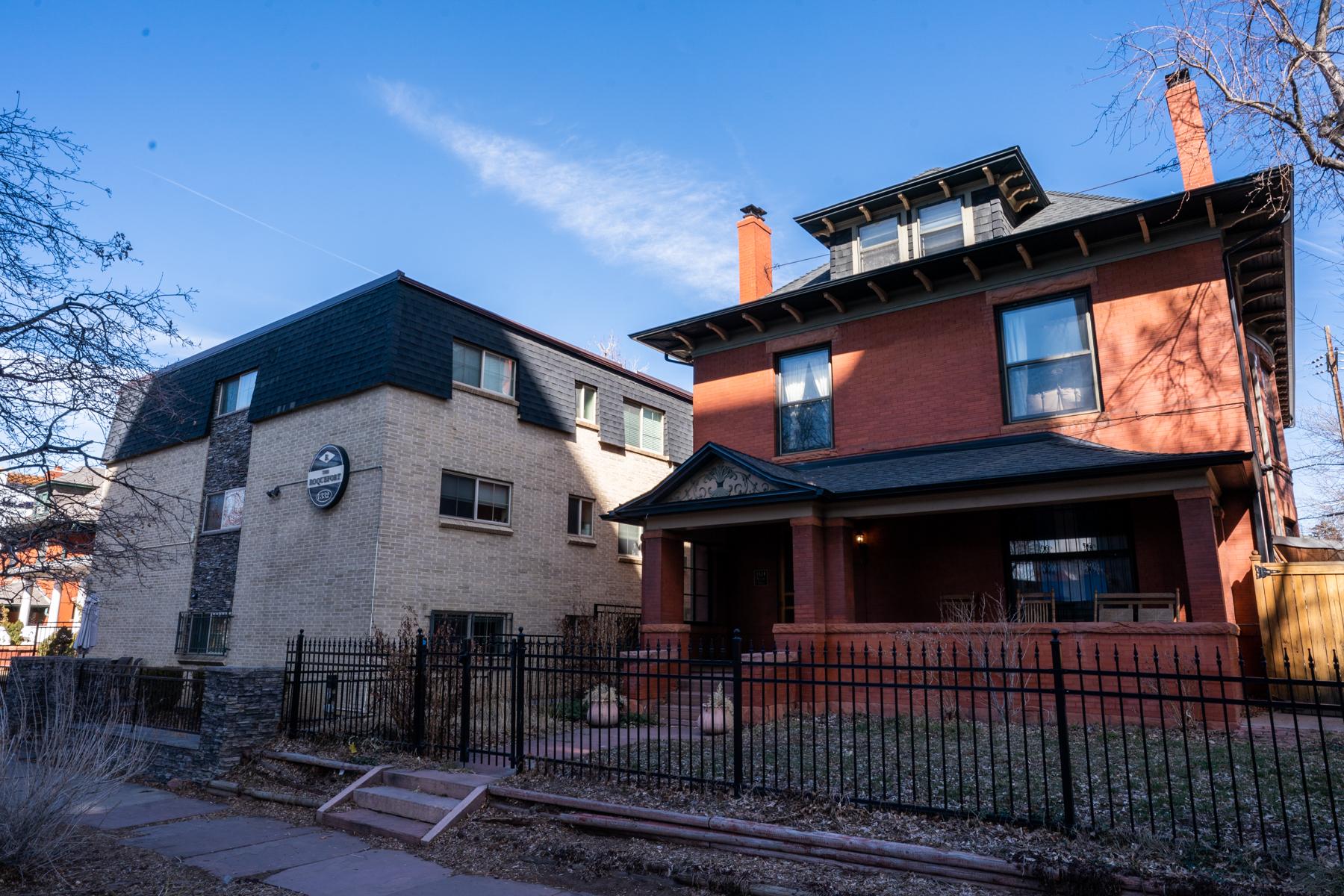
Update, 10:05 a.m. Thursday Nov. 9, 2023: On Thursday morning, Gov. Polis announced he will call a special session to address property taxes. Read more about it here. The original story continues below.
Earlier this week, state Rep. Mike Lynch picked up his phone and saw that Gov. Jared Polis was calling. That was a bit surprising: Lynch is a Republican, the governor is a Democrat, and they don’t talk very often.
“We don't usually converse on much, and so it wasn't a call about the Broncos,” said Lynch, the GOP’s minority leader in the House.
Even more surprising: The call came at 4 p.m. Tuesday — just hours before the polls closed on Proposition HH, the tax proposal put forward by Gov. Polis and top Democrats.
Prop. HH was supposed to be Democrats’ answer to rising property tax bills (along with doing many other things). But the fact that governor was calling, Lynch said, was the “first indication that this was going to fail.”
Indeed, Prop. HH was dead on arrival, facing a decisive rejection by 60 percent of voters. And the governor, in his call to the Republican leader, seemed already to be working on a Plan B for property taxes, Lynch said.
“We started talking instantly about what that policy would look like moving forward,” Lynch said.
It was one of a series of calls and meetings held amid the failure of the ballot measure. With Prop. HH defeated, there is no plan to grant additional tax cuts to property owners. Many home and business owners could see their property tax bills increase by 30 or 40 percent next year due to rising property values.
Now, Gov. Jared Polis faces a tough choice: Should he try to change that by calling lawmakers to the Capitol for a special session within the next few weeks?
“I can confirm it’s a conversation,” said Democratic Sen. Chris Hansen, who had sponsored Prop. HH.
The governor’s office didn’t immediately respond to a request for comment. But political circles are buzzing with talk of whether lawmakers will be beckoned from their post-Thanksgiving torpor — or maybe even sooner — and forced to argue over tax policy.
Polis faces a tight deadline if he wants to head off next year’s tax bill increases. Local property tax rates must be finalized by Dec. 15 and local governments are already finalizing their budgets, which rely heavily on property taxes.
Lawmakers are not due back for their regular session until early January, so a special session is likely the only option for them to act in time.
But if lawmakers do convene, they’ll have to navigate a divide in the Democratic Party. The failure of Prop. HH left some Democratic voters and even lawmakers feeling embittered and disappointed. With the property tax issue now getting a fresh look, some progressives want to focus tax relief on lower-income homeowners.
“The tax cuts as they were structured in HH were not equitable,” said Democratic Rep. Javier Mabrey. “If we’re coming back to the table, I want to make sure that tax relief is targeted to people who actually need it and that we are not cutting taxes for the uber wealthy.”
Others on the left have questioned why the legislature is putting so much focus on rising taxes for property owners, rather than focusing on renters who wish they could afford to buy a home — especially as eviction levels hit records in Denver.
Homeowners “absolutely don't need relief,” said Adrian Felix, who’s active in Denver Democratic politics. “We’re seeing numbers that over 10,000 renters in Denver face eviction this year… The data shows that obviously the real crisis exists with renters.”
Colorado has some of the lowest property tax rates in the country, according to the Tax Foundation, while its overall tax burden is closer to the middle of the pack. At the same time, Colorado’s property values saw some of the nation’s steepest gains in recent years.
Republicans have little power in the statehouse, but they still could influence the property tax conversation. Lynch said his caucus was still working out their preferred approach — whether it’s a short-term stopgap, or perhaps a longer-term change.
Sen. Mark Baisley, a Republican, suggested putting a cap on next year’s property tax bills, saying that they should grow by no more than 10 percent.
“That would be a really healthy bill that we could pass in a special session,” he said. “But I don't have the confidence that the Democrat legislature would do that.”
One big question for both parties is how they would pay for property tax cuts.
Limiting property tax revenues would affect the budgets of schools, local governments, emergency services and others. State lawmakers generally agree they should make up for any revenue lost by schools and, in part, local governments and other local services.
One option to pay for that “backfill” is to tap into the TABOR surplus — a pool of billions of dollars that is set to be refunded to taxpayers in coming years. In recent years, the legislature has used some of that money to pay for property tax relief measures, which are an allowable use of TABOR refund money.
Scott Wasserman, president of the progressive Bell Policy Center, said the legislature should tap into the surplus pool, especially since it’s been so large lately.
“The good news is with $3.5 billion of TABOR surplus, we can still give people $600, $700 in rebate checks,” even after paying for property tax backfill, he said.
Lynch said Republicans were open to the idea of using the TABOR surplus again.
“It's not a complete no,” he said. But he also wanted to look at the general fund and other sources.
Prop. HH, the failed measure, also would have relied on TABOR surplus money to make up for property tax cuts. But it also went much further; it eventually could have diverted billions of dollars per year from TABOR refunds, instead spending that money mostly on public education.
Meanwhile, local governments are racing to figure out what all this will mean for them. Changes to property tax rates could force them to refigure their budgets. And statewide action could even interfere with plans for tax cuts at the local level, said Commissioner Bob Campbell of Teller County.
Teller County leaders were trying to finalize details of their budget this week, including cutting the property tax rate by about 2 mills or more, he said. But those plans could backfire — if the county voluntarily cuts its own tax rate, but then must accept a state-level cut too, it could find itself in a financial hole.
“It gives us literally no time to react, to create a budget,” Campbell said. “I don't want to create a budget that's not accurate, but I also don't want to hold back on a tax decrease only to find that this special session doesn't happen.”









